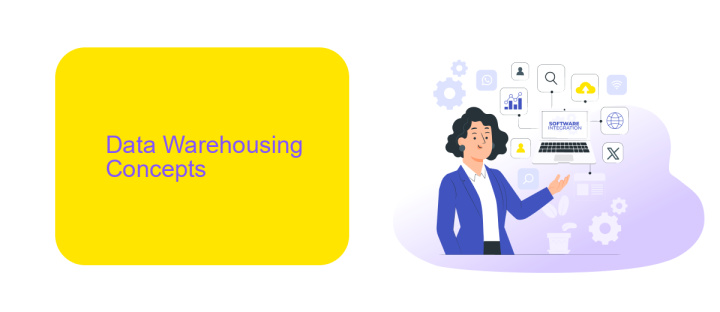Data Warehousing Integration
Data warehousing integration is a critical process that enables organizations to consolidate and manage vast amounts of data from diverse sources. By seamlessly integrating data, businesses can enhance their decision-making capabilities, improve operational efficiency, and gain valuable insights. This article explores the key aspects of data warehousing integration, its benefits, and best practices to ensure a successful implementation.
Introduction
Data warehousing integration is a critical aspect of modern data management, enabling organizations to consolidate data from various sources into a single, coherent repository. This process enhances data accessibility, consistency, and quality, which are essential for informed decision-making and strategic planning.
- Improved data consistency and accuracy
- Enhanced data accessibility
- Streamlined data management processes
- Support for advanced analytics and reporting
To achieve seamless data warehousing integration, tools like ApiX-Drive can be invaluable. ApiX-Drive facilitates the automation of data transfers between different systems, ensuring that data is up-to-date and synchronized across platforms. By leveraging such services, organizations can reduce manual errors, save time, and focus on deriving actionable insights from their data.
Data Warehousing Concepts

Data warehousing is a critical component in modern data management, providing a centralized repository for storing, managing, and analyzing large volumes of data from various sources. It enables organizations to consolidate disparate data into a single, unified view, facilitating comprehensive analysis and informed decision-making. Key concepts in data warehousing include ETL (Extract, Transform, Load) processes, which are essential for integrating data from multiple systems into the warehouse, and OLAP (Online Analytical Processing) tools that allow users to perform complex queries and generate insightful reports.
Integration is a crucial aspect of data warehousing, ensuring seamless data flow between different systems and the warehouse. Services like ApiX-Drive play a significant role in simplifying this process by offering automated data integration solutions. ApiX-Drive enables businesses to connect various applications and platforms effortlessly, ensuring that data is consistently updated and synchronized. This not only reduces the burden of manual data handling but also enhances the accuracy and reliability of the data stored in the warehouse, ultimately supporting better business intelligence and analytics.
Data Integration Challenges

Data integration in data warehousing is a complex process that involves combining data from different sources into a unified view. This task is fraught with numerous challenges that can hinder the efficiency and accuracy of the integration process.
- Data Quality: Ensuring the accuracy, completeness, and consistency of data from various sources can be challenging.
- Data Transformation: Different data formats and structures require significant effort to normalize and transform.
- Scalability: Handling large volumes of data without compromising performance is a critical issue.
- Real-time Integration: Integrating data in real-time requires robust and efficient systems.
- Security and Compliance: Ensuring data privacy and compliance with regulations is essential.
To address these challenges, tools like ApiX-Drive can be highly beneficial. ApiX-Drive offers automated data integration services that simplify the process of connecting disparate systems, ensuring data quality, and enabling real-time data synchronization. By leveraging such tools, organizations can streamline their data integration efforts, improve accuracy, and enhance overall data management.
Integration Strategies

Effective integration strategies are crucial for the successful implementation of data warehousing solutions. These strategies ensure seamless data flow between various systems, enabling accurate and timely data analysis. One of the key aspects of integration is the selection of appropriate tools and technologies that can handle the complexity and volume of data.
To achieve optimal integration, organizations should consider several factors, including data quality, scalability, and real-time processing capabilities. Integration tools like ApiX-Drive can significantly simplify the process by offering pre-built connectors and automation features. This allows businesses to connect different data sources without extensive coding or manual intervention.
- Identify and assess data sources and their compatibility.
- Utilize integration tools like ApiX-Drive for seamless data flow.
- Ensure data quality and consistency through validation checks.
- Implement real-time data processing for timely insights.
By adopting these strategies, organizations can enhance their data warehousing capabilities, leading to more informed decision-making and improved business performance. Leveraging tools like ApiX-Drive can streamline the integration process, making it more efficient and less prone to errors.
Data Warehousing Integration Tools
Data warehousing integration tools are essential for consolidating data from various sources into a single repository for analysis and reporting. These tools facilitate the extraction, transformation, and loading (ETL) processes, ensuring that data is accurately and efficiently moved into the data warehouse. They often come equipped with features like data cleansing, data mapping, and real-time data synchronization, which are crucial for maintaining data integrity and consistency.
One of the notable services in this domain is ApiX-Drive, which simplifies the integration process by offering a user-friendly interface and a wide range of pre-built connectors. ApiX-Drive allows businesses to automate data flows between different applications and databases without the need for extensive coding. This service supports real-time data updates and provides robust error-handling mechanisms, making it an invaluable tool for seamless data warehousing integration. By leveraging such tools, organizations can ensure that their data is always up-to-date and readily available for decision-making processes.
FAQ
What is Data Warehousing Integration?
Why is Data Warehousing Integration important?
What are the common challenges in Data Warehousing Integration?
How can automation tools facilitate Data Warehousing Integration?
What are some best practices for successful Data Warehousing Integration?
Apix-Drive is a simple and efficient system connector that will help you automate routine tasks and optimize business processes. You can save time and money, direct these resources to more important purposes. Test ApiX-Drive and make sure that this tool will relieve your employees and after 5 minutes of settings your business will start working faster.

